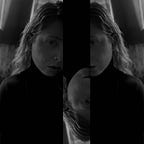I’m Trying to Practice Self-Efficacy
If you have a strong belief in it, it will become true… right?
When I think of extraordinary women doing extraordinary things through their practice of self-efficacy, I think of Michelle Obama, Alexandria Ocasio-Cortez, and Beyonce.
What these three women share is a deeper understanding of the hierarchy of being. Their ideas are new to everyone. They have original thoughts. Up to the global reaction to their actions, if their actions could potentially put others at a disadvantage, and down to the empathetical individual reaction and what it would mean to harm a singular being. They also respect themselves and their work enough to be true to it. They aren’t throwing away projects because of this awareness they have. They are following their passions with confidence through the practice of self-efficacy.
We are not all AOC’s. We are not all Beyonce’s. And no one is Michelle Obama. But what we can learn from these women is their practice of self-efficacy.
I started dating when I was 16. My first kiss with a guy was in the backseat of my friend's car in the McDonald’s drive-thru. He was gay. I started “seriously” dating a guy who was already out of high school and he started seriously having feelings for me. He told me he was “falling in love” with me one night in his car and my heart sank beneath the seat I sat on. Um, you, what? I thought. I didn’t say that, though. A few months later he bought me a “promise”* ring. It had a little CZ heart inlay. He got it at Walmart.
One night at dinner my dad asked me, “Carsen, do you love that guy?” My heart sank, I looked at the ring. I looked at my mom, her lips were pursed. I thought about how I loved my friends and my family and my dogs and my teachers and all the people I had fun with in class. Then I thought about how I loved him and there were giant Interstate-sized signs with flashing question marks. “No,” I said.
I lacked self-efficacy in my ability to not only understand but to fully support the spectrum of infinite levels of love I feel.
Beychella is one of many examples of Beyonce’s use of self-efficacy. In the documentary on the making of Beychella, Homecoming, she expressed her awareness of her hierarchy within her family in the simplest way: “‘I got pregnant unexpectedly, and it ended up being twins,’ she says, a statement dripping with subtext.”
She went on to say that between the pressures of motherhood, breastfeeding twins, directing and starring in the biggest production that festival had ever seen, and getting into shape after her pregnancy: “There were days that I thought I’d never be the same.” That I thought.
She believed in her ability to do all of those things and more. She went above and beyond. She set a goal and she matched it and doubled it without so much as a blink of an eye. She didn’t have to think about whether or not she’d “be the same,” she believed in her ability to become brand new.
Vanity Fair quotes her, “‘Until I see some of my notes applied, it doesn’t make sense for me to make more,’ the perfectionist says at one point.” Women who practice self-efficacy, especially in their careers, are often villainized by criticizing the trait that they are expecting their version of perfection to be met with vision, passion, and force.
What she said was: I know in my heart of hearts that what you will do is apply these notes and then you will apply the rest of my notes following. She believed in her production. She wasn’t questioning herself or anyone in that studio with her. She knew they were going to execute her version of perfect. She was not weaponizing her expectations, she was letting them be known.
I have always loved learning and I’ve always tried to, at least in retrospect, understand those teachable moments. Like when I got a ticket for being drunk at 20 and I called my dad to rescue me from the cops on a weeknight and had to do community service. Or when someone ordered a “tonic water” from me when I was 19 and a server at a finer-dining spot, and I had no idea what tonic water was but instead of asking literally anyone in the restaurant (including her) what tonic water was, I brought her San Pelligrino (with lime) and she said, “Um, I ordered tonic.” And then I had to say, “Oh, I guess I don’t know what that** is.”
But more than that, I especially enjoy and carefully nurture the ways I’m learning to become more aware. Of myself, my body, my place in the world, my complicity in perpetuating misogyny for most of my life. I’m becoming more aware of the bigger picture. The hierarchy of being. Once I accept where I am, I can go wherever I want from here.
Be peaceful babes, xo, carsen
*What, specifically, are those “promises” that a “promise ring” is supposed to symbolize? Anyone?
**Too embarrassed to even admit that I didn’t even know the word “tonic.”
